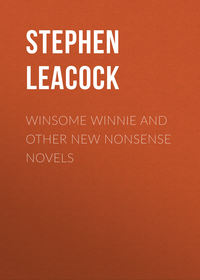Kitabı oku: «Winsome Winnie and other New Nonsense Novels», sayfa 3
Bir şeyler ters gitti, lütfen daha sonra tekrar deneyin
Türler ve etiketler
Yaş sınırı:
0+Litres'teki yayın tarihi:
07 mayıs 2019Hacim:
140 s. 1 illüstrasyonTelif hakkı:
Public Domain